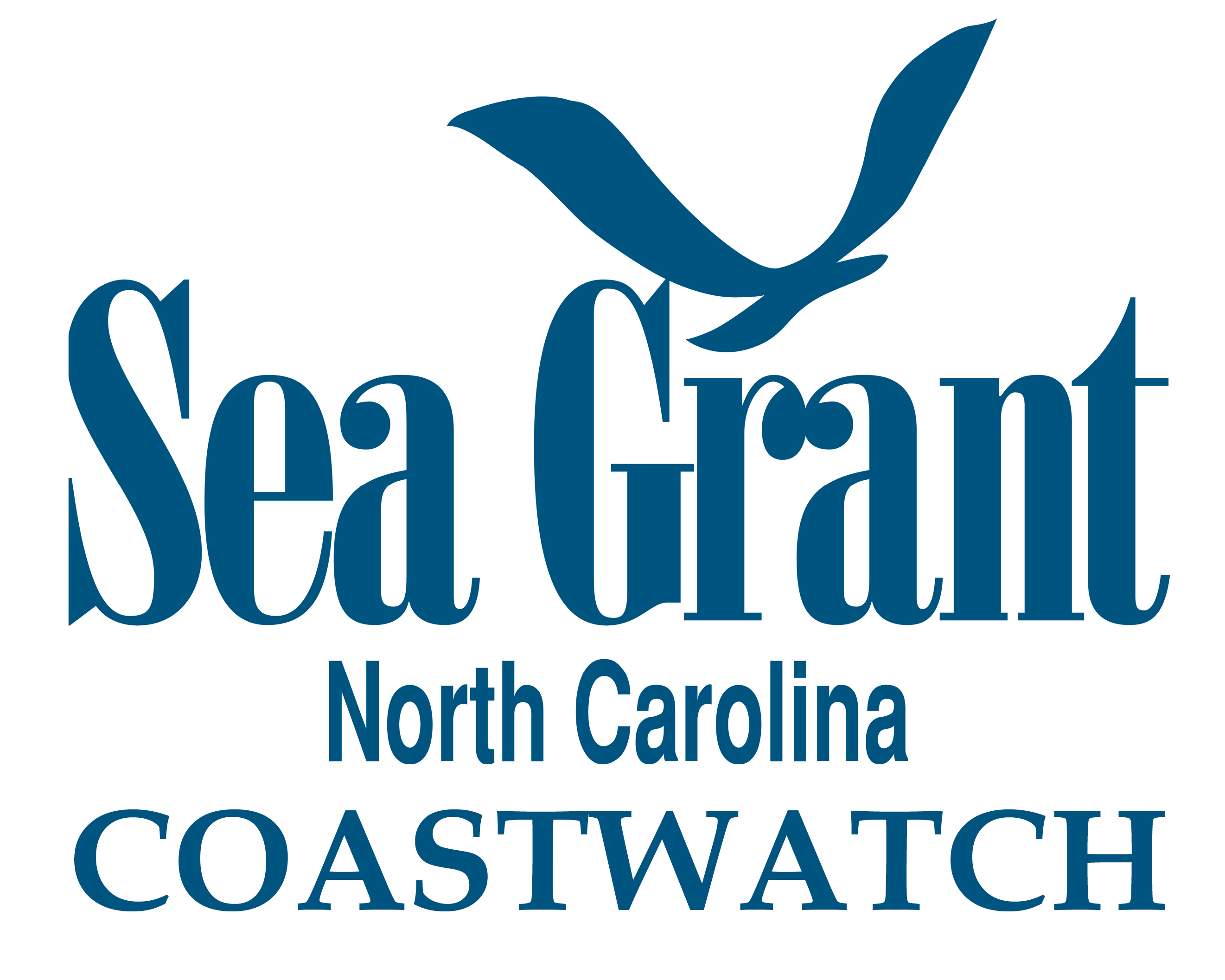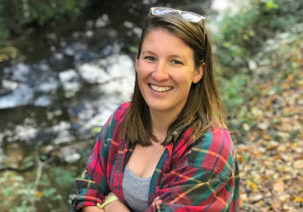North Carolina Sea Grant helps to develop a cadre of educated, innovative and technologically advanced professionals through a variety of fellowships for talented graduate students.These rising movers and shakers will advance the field for years to come.
BY LEE CANNON, MARIS INCREMONA, SUMMER WALLS, KATELYN VAUSE AND DAVE SHAW
Clams May Facilitate Seagrass Recovery
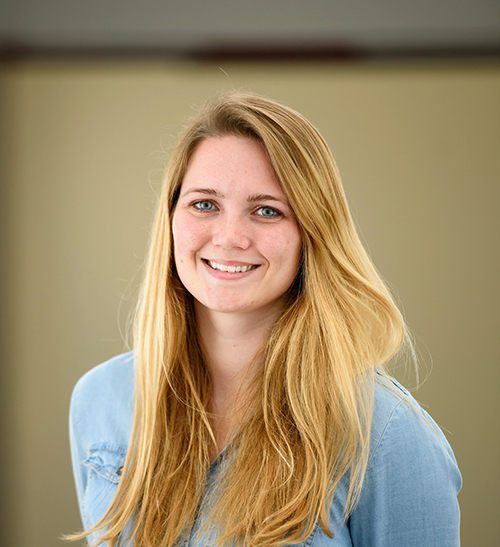
Sarah Donaher
Sarah Donaher will study the resilience and restoration of seagrass beds as the recipient of the 2019 North Carolina Coastal Research Fellowship. North Carolina Sea Grant and the N.C. Coastal Reserve and National Estuarine Research Reserve Program sponsor the fellowship, which supports work in the state’s reserve system.
“Understanding how ecosystems such as seagrasses respond to disturbance is a fundamental ecological question,” says Brandon Puckett, research coordinator at the Coastal Reserve. “By testing the potential for clams to facilitate the recovery of seagrasses from disturbance, Sarah’s research also will provide insights that can be applied in restoration and resource management contexts.”
Donaher, a marine sciences doctoral student at the University of North Carolina at Chapel Hill, will focus in part on the erosional effect on seagrass beds from high wave energy caused by storms and boat wakes.
Drone Data Aids “Ghost Forests” Research
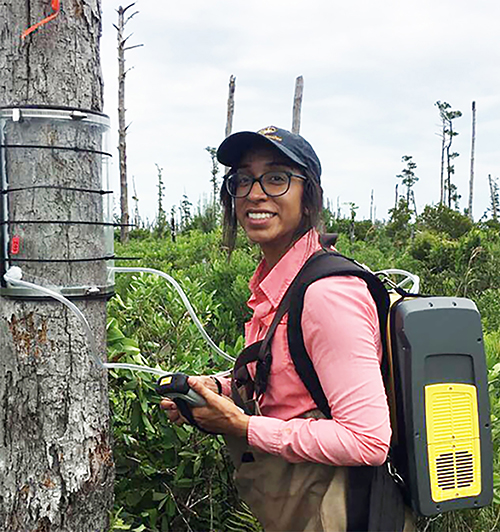
Melinda Martinez
The 2019 North Carolina Sea Grant – North Carolina Space Grant Graduate Research Fellows will identify early warning signs of “ghost forests” using drones and remote sensing technology.
Melinda Martinez, a doctoral student in forestry and remote sensing in the Department of Forestry and Natural Resources at North Carolina State University, and Emily Ury, a doctoral student in ecology from Duke University, will determine when saltwater has begun killing healthy wetlands, a process that leaves behind ghostly stands of dead trees.
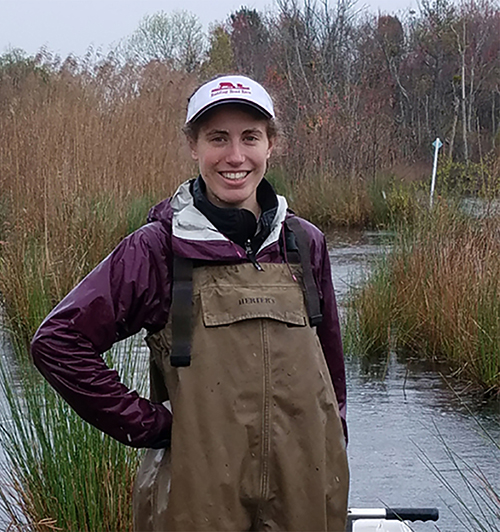
Emily Ury
“It is interesting this year that both fellows proposed to use drones in their research,” says Susan White, executive director of North Carolina Sea Grant and North Carolina Space Grant. “We hope their work will encourage others to utilize cutting-edge technologies.”
Martinez will use remote-sensing technologies to study coastal forested wetlands. She will measure the volume of greenhouse gases released by standing dead trees and compare that to amounts released by soils in forested wetlands near the coast.
Ury will examine how marine salts present due to sea level rise affect plants that are accustomed to growing in freshwater, and if signs of stress from salt exposure can be distinguished from other stressors, such as flooding.
Shoreline Erosion Relates to Nurseries
Erin Voigt, a doctoral student at North Carolina State University, is the recipient of the 2019 joint fellowship from North Carolina Sea Grant and the Albemarle-Pamlico National Estuary Partnership (APNEP).
Voigt will study how native and invasive species distribution and wave exposure affect shoreline erosion and the availability of nursery habitats. She anticipates this work will identify factors that affect marsh shoreline erosion and growth along the Currituck, Albemarle and Pamlico sound system. The study also will use a drone to map marsh habitat change over time.
“The resulting insights — into the interacting effects of invasive marsh grasses and wave energy on shoreline erosion and fish habitat at landscape scale — will help to inform APNEP’s approach to invasive species management and fish habitat conservation,” says Dean Carpenter, APNEP program scientist.
Sea Grant/WRRI Fellows Focus on Diversity
Six graduate students across North Carolina are beginning new coastal and water resource research projects. North Carolina Sea Grant and the Water Resources Research Institute of the University of North Carolina system are funding four fellows. Research consortia facilitated by WRRI — the Urban Water Consortium and the Stormwater Consortium — are supporting the other two projects.
“We are pleased to have our funding partners join us again this year in support of research fellowships that focus on diverse communities,” says John Fear, deputy director for the state’s Sea Grant and WRRI programs. “We have a broad range of projects that consider topics of immediate and long-term needs for a variety of North Carolina communities.”
North Carolina Sea Grant and WRRI are supporting these four fellows:
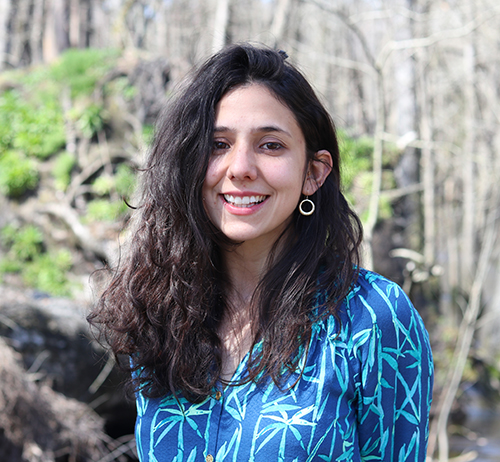
Olivia Vila
- Olivia Vila is a doctoral student in parks, recreation and tourism management at NC State. She will discuss disaster-related experiences with people who live in Wilmington in order to reveal recovery priorities. She will focus particularly on engaging Hispanic/ Latinx community members. Her project uses a citizen-science framework to understand how this particular approach can assist with communities’ recovery from natural disasters.
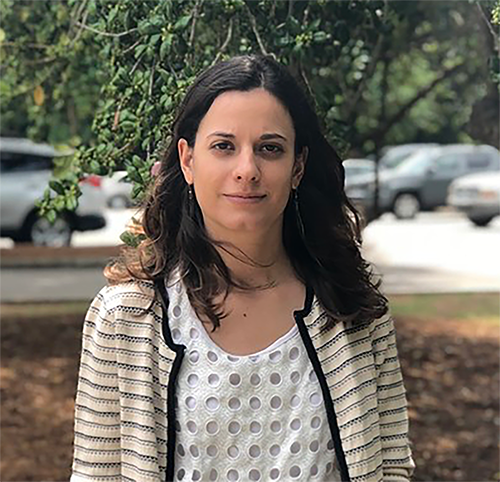
Lise Montefiore
- Lise Montefiore is studying for her Ph.D. in biological and agricultural engineering in the Biosystems Analytics Lab at NC State. Her research examines how land-use change can affect water quality. She is using satellite images to map the growth of swine concentrated animal feeding operations (CAFOs) waste lagoons across North Carolina’s coastal plain in order to investigate potential connections between CAFO growth and changes in water quality.
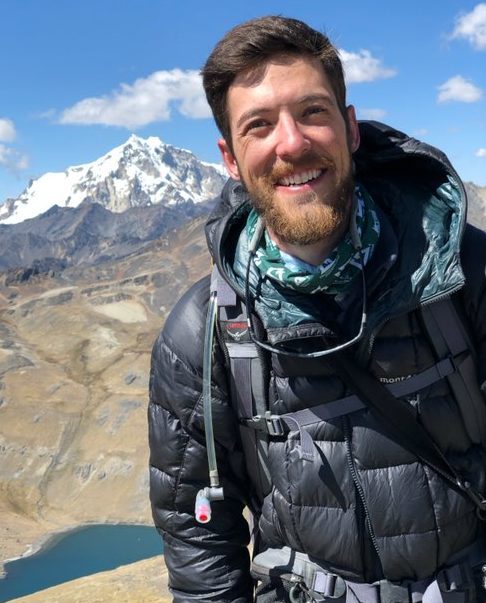
Riley Mulhern
- Riley Mulhern is studying for his doctorate in environmental science and engineering at UNC-Chapel Hill. He is partnering with UNC-Pembroke and American Indian Mothers for this project, which complements a larger National Science Foundation project, “Water Health and Infrastructure Resilience and Learning.” His research focuses on mitigating risks of drinking water contamination among vulnerable and marginalized communities, particularly in Wake and Robeson counties. He is developing predictive tools to respond to water quality risks.
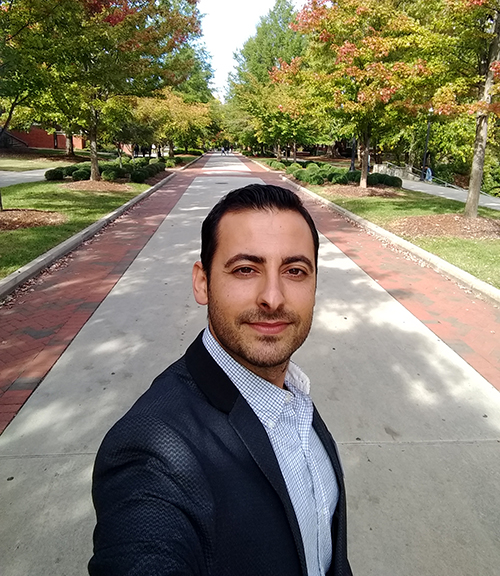
Yener Ulus
- Yener Ulus is a doctoral student in environmental health science at UNC- Greensboro. Ulus seeks to understand how salinization changes toxic mercury levels in North Carolina’s coastal wetlands. He will travel to Dare County and Tyrell County with a team of undergraduate students to collect water and sediment samples for analysis.

Arpit Sardana
The Urban Water Consortium is funding Arpit Sardana, a Ph.D. student in environmental engineering at NC State. Sardana’s research aims to improve water quality using natural processes. By conducting tests on water samples from wetlands across North Carolina, he will examine how sunlight can degrade pharmaceuticals in wastewater.
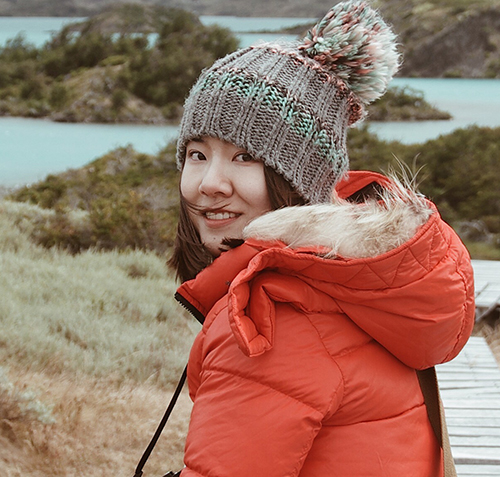
Zhenzhen Zhang
The Stormwater Consortium is funding Zhenzhen Zhang, a doctoral student studying interdisciplinary sustainable science at NC State. Her research focuses on helping communities be aware of and be prepared for issues related to climate change, such as increased flooding and stormwater management challenges. For this project, she will research the benefits to teachers, students and ecosystems when implementing green infrastructure in elementary schools across the city of Raleigh.
More information about these and other funding opportunities is available at:
- ncseagrant.ncsu.edu/funding-opps/
- wrri.ncsu.edu/research/funding/
- ncspacegrant.ncsu.edu/higher-ed- opportunities/
This article was published in the Summer 2019 issue of Coastwatch. Click here for reprint requests.
